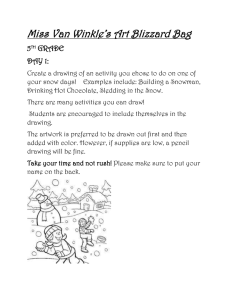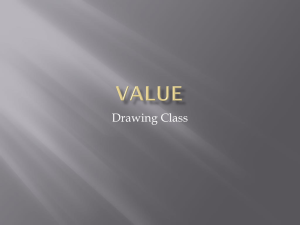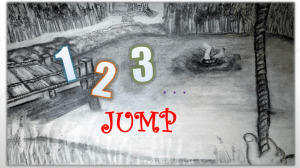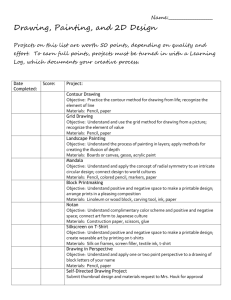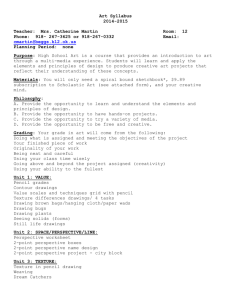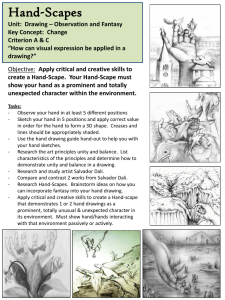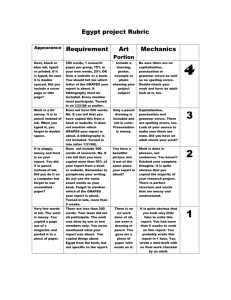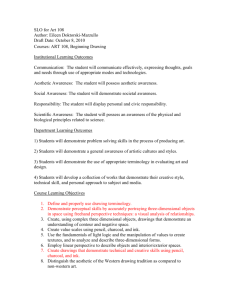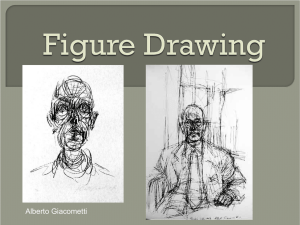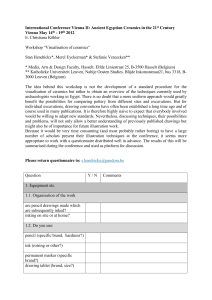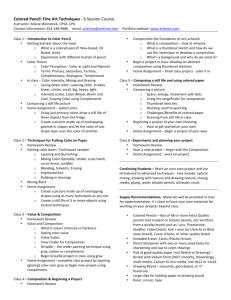`Printing with a pencil` by Jim Savage
advertisement
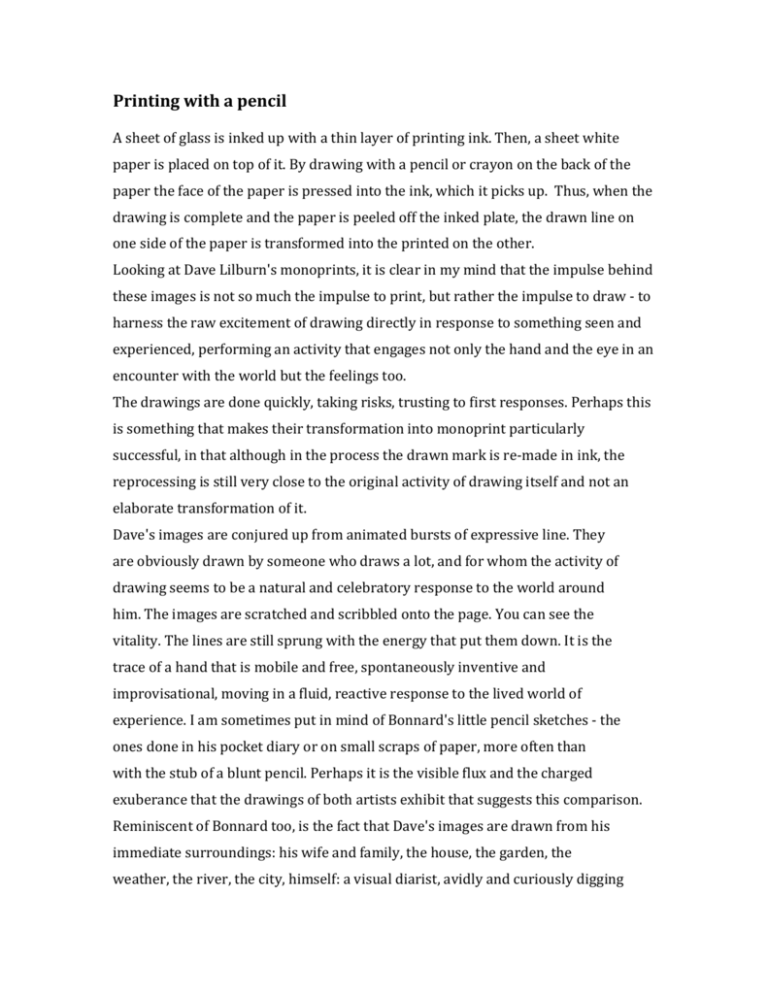
Printing with a pencil A sheet of glass is inked up with a thin layer of printing ink. Then, a sheet white paper is placed on top of it. By drawing with a pencil or crayon on the back of the paper the face of the paper is pressed into the ink, which it picks up. Thus, when the drawing is complete and the paper is peeled off the inked plate, the drawn line on one side of the paper is transformed into the printed on the other. Looking at Dave Lilburn's monoprints, it is clear in my mind that the impulse behind these images is not so much the impulse to print, but rather the impulse to draw - to harness the raw excitement of drawing directly in response to something seen and experienced, performing an activity that engages not only the hand and the eye in an encounter with the world but the feelings too. The drawings are done quickly, taking risks, trusting to first responses. Perhaps this is something that makes their transformation into monoprint particularly successful, in that although in the process the drawn mark is re-made in ink, the reprocessing is still very close to the original activity of drawing itself and not an elaborate transformation of it. Dave's images are conjured up from animated bursts of expressive line. They are obviously drawn by someone who draws a lot, and for whom the activity of drawing seems to be a natural and celebratory response to the world around him. The images are scratched and scribbled onto the page. You can see the vitality. The lines are still sprung with the energy that put them down. It is the trace of a hand that is mobile and free, spontaneously inventive and improvisational, moving in a fluid, reactive response to the lived world of experience. I am sometimes put in mind of Bonnard's little pencil sketches - the ones done in his pocket diary or on small scraps of paper, more often than with the stub of a blunt pencil. Perhaps it is the visible flux and the charged exuberance that the drawings of both artists exhibit that suggests this comparison. Reminiscent of Bonnard too, is the fact that Dave's images are drawn from his immediate surroundings: his wife and family, the house, the garden, the weather, the river, the city, himself: a visual diarist, avidly and curiously digging his own patch and finding new engagements in the everyday. There is the vulnerable intimacy of the family portraits, at once tender and raw, deep celebrations of both love and mortality; there is the sheer visual delight in the pages of cat drawing; the visual curiosity in the recording of particular places and atmospheres, whether it is the contented hum of a summer garden, or the sour beauty of the river and docks, under a winter sky. In the self-portrait exhibited here lies, perhaps, the unseen keystone of the work. It is just one image from a continuing output over the years. The artist eyeball to eyeball with himself duels with his own self-image amid the bric-a-brac of imagery from his daily life. These images and collaged image-fragments fill the pages of the ongoing sketchbook that forms this artist’s work, images that proclaim the delight and curiosity of one man and a pencil in his response to the world around him. Jim Savage

